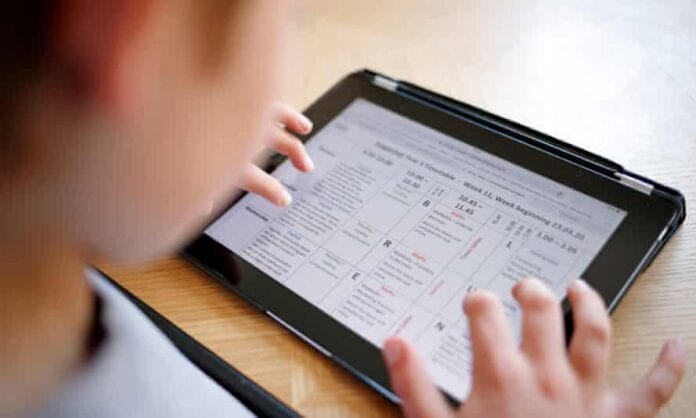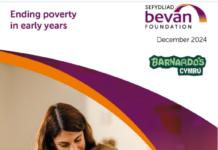· Major study of 23,701 pupils in Wales from Renaissance Learning reveals reading skills improved over lockdown periods, with many picking up longer books of greater difficulty
· Research from the National Literacy Trust shows lockdown reading helped improve wellbeing of children dealing with the pandemic
· One of Us is Lying by Karen M McManus and Harry Potter and the Prisoner of Azkaban by J.K Rowling were favourite books read in the first lockdown by secondary and primary pupils respectively
The annual ‘What Kids Are Reading Report’ from learning and assessment provider Renaissance Learning reveals how children in Wales saw both an improvement in their reading skills and a marked uplift in reading enjoyment levels during the pandemic.
The study analysed the reading habits of 23,701 Welsh pupils among over 1.1 million pupils across the UK and the Republic of Ireland.* It showed readings skills improved over lockdown periods with many children picking up longer books of greater difficulty.* Additionally presented in the report are findings from a survey of 4,141 pupils across the UK by the National Literacy Trust** which show three in five children said reading made them feel better during lockdown. 32% also said reading helped them when they felt sad because they could not see friends or family.**
Better reading
While the number of books read overall dropped by 17% compared to the previous year, during school closures reading levels increased. And when they read, children were inclined to pick up more challenging books for their age. The books they chose were longer and read with better comprehension. Primary school children and those up to Year 7 in particular improved on their reading levels by reading more demanding texts.
Compared to the other four UK regions, quality of reading comprehension in Wales has recovered slightly from the previous year. However, the level of book difficulty stayed lower for longer.
The data on reading habits and activity was complemented by responses from the National Literacy Trust’s Annual Literacy Survey, which found that reading for pleasure dipped at the beginning of 2020, and recorded its lowest level of self-reported reading enjoyment since 2005 (48% of children).**
However, the first lockdown also signalled a marked change in this downward trend. During school closures many more pupils began to enjoy reading again with 56% of young people saying they enjoyed reading either very much (24%) or quite a lot (32%). When it comes to reading choices during Covid-19, almost seven in ten children said they had read more fiction either on paper or on-screen during lockdown, with most turning to adventure stories that was by far the most popular fiction genre.**
Favourite books and authors
During the first lockdown One of Us is Lying by Karen M McManus and Harry Potter and the Prisoner of Azkaban by J.K Rowling topped the leader boards of the most favourite books by secondary and primary school pupils respectively. David Walliams and Julia Donaldson became even more popular. J. K. Rowling made a very substantial re-appearance with 36 mentions as more primary school pupils picked up the Harry Potter series again, while Roald Dahl sustained his popularity. Suzanne Collins showed an increase in popularity. However, Jeff Kinney declined in popularity and Roderick Hunt almost disappeared altogether.
This past year also saw more children discover new authors. According to National Literacy Trust data, almost one in two pupils (46%) said they had read new books, while one in seven said they had turned to a book they had read before.**
From 2020 to 2021 there was little change in favourite authors overall, Jeff Kinney, David Walliams and Roald Dahl remained popular. J. K. Rowling re-appeared in the 2021 overall list, Jill Murphy was a new entrant, and Roderick Hunt declined in popularity.
The ‘What Kids Are Reading Report’, was written using Renaissance data analysed by University of Dundee academic Professor Keith Topping. He comments: “During the lockdown overall, pupils were tending to read longer books of greater difficulty and with greater comprehension. Having more time to read gave children the chance to immerse themselves in literature and schools should encourage more reading time now that they are open again.
“To improve reading and literacy levels, particularly we would encourage more information and in-service training for primary schools in Wales.”
Renaissance Director John Moore said: “Lockdown has been difficult for many children, especially when schools were closed and they could not access school libraries or see their friends. At Renaissance we took steps to support teachers during the uncertainty of school closures, so it is pleasing to see this year’s report emphasise the importance and benefit of reading on academic achievement and wellbeing.
“Knowing that reading really helped younger children to feel better throughout the pandemic is very encouraging. It’s promising to see that when pupils had a choice of books to hand many chose a more challenging book, and one that perhaps allows for more escapism.”
Dr Christina Clark, Head of Research at the National Literacy Trust, comments: “Our research into reading enjoyment indicates that having more time to read and the increased autonomy of book choice, along with the opportunity to read for its own sake, were key reasons why more young people are enjoying being immersed in stories. Half of the children agreed that at such a time as the lockdown, reading improved their wellbeing and encouraged them to dream about the future, offering a refuge for a source of calm, escapism and relaxation. Schools should be encouraging pupils to read to entertain a variety of purposes not just for learning but for their wellbeing too.”
A copy of the full report can be found here: https://www.renlearn.co.uk/what-kids-are-reading-2021
Help keep news FREE for our readers
Supporting your local community newspaper/online news outlet is crucial now more than ever. If you believe in independent journalism, then consider making a valuable contribution by making a one-time or monthly donation. We operate in rural areas where providing unbiased news can be challenging. Read More About Supporting The West Wales Chronicle























